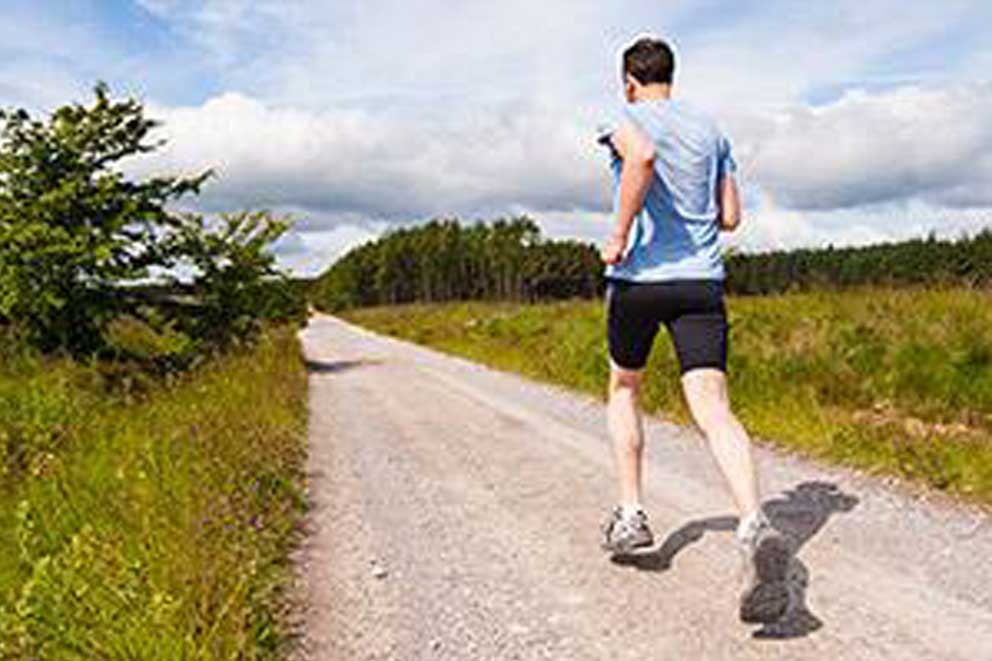Running training zone
If you're a beginner, or even a regular runner, here are our top tips to help you reach your goal.

We're delighted you've decided to take part in a running challenge for us, and welcome you as part of Team Animal! We're here to help, so check out the information on kit and training, and give us a shout if you have any questions.
Gear
Running shoes
With so many to choose from, buying running shoes can be a daunting task. It's worth going to a running shop whose staff will be specially trained to fit the right shoes for your mileage, terrain and shape of foot.
A gait analysis can be helpful to determine which shoes are suited to your running style. Don't be concerned about the brand, it's all about the fit and what's right for you.
Clothing
You wouldn't go to the beach in ski gear, so why not get some good running gear. A good pair of running leggings or shorts will be lightweight, have good flexibility to not hold back your stride and will be made from technical fabric to keep you cool and not retain sweat.
A good running, short sleeve and long sleeve top. Again these will be from technical fabric to keep you comfortable throughout your run, lightweight and not retain sweat, which can be very important if you are training in the summer.
Socks
Almost as important as your shoes, it's essential to keep your socks in good condition. Your feet will thank you on any longer runs. Running specific socks will use special fabrics to not retain sweat and provide the right cushioning around your foot.
Top training tips for runners
If you're a beginner, or a regular, to running and want to get the best from yourself in the lead up to a marathon, half marathon or 5k here are our top ten tips to help you reach your goal.
- 1 Invest in a good pair of running shoes.
- 2 Make a plan and keep a training log. Write down your daily mileage, run times and how you feel. Runners World have some great training plans for your distance and in what time you would like to run.
- 3 Gradually increase your weekly mileage by ten percent, this allows you to go further without pushing yourself too far.
- 4 Every third or fourth week of training reduce the mileage you usually do and use it as a recovery week.
- 5 Run three or four days a week. Mix up distance and times but try and include one long run and two shorter runs for speed and strength.
- 6 Alternate hard and easy days or hard days and days off.
- 7 Allow yourself one or two days off a week to completely rest and recover.
- 8 Mix in cross training to supplement your running. Swimming, cycling, or rowing are good options.
- 9 Think about your nutrition. Maintain a healthy diet if you're looking to get the most out of your running. Try to eat the right mix of carbs, protein, fat and vitamins to help you before and after runs.
- 10 Never push your body too far. If you're tired, rest.
Top foods to fuel your run
Nutrition
One of the most important things when it comes to running is your diet and nutrition, to run effectively you have to fuel your body effectively. These are what you should be eating so that you can run to the best of your ability and recover quickly.
- Carbohydrates are the predominant fuel source used by your body. They're stored in your muscles as glycogen, which your body uses while running.
- Protein plays a vital role in muscle repair, recovery and growth.
- Fats are another important fuel source during low-intensity exercise and help in the absorption of some vitamins.
- Vitamins and minerals will keep your immune system working properly and help prevent illness while exercising.
Energy:
Sweet potato,
Brown rice,
Porridge with blue berries.
Building muscle:
Chicken breast,
Turkey breast,
Salmon.
Mid run snacks:
Energy gels.
Boosting your immune system:
Herbal teas,
Kale,
Broccoli.
Hydration
As you run, you sweat. This means your body loses water. It's important to keep well hydrated so that you can maintain a good level of performance.
The best way to gauge whether you need to drink more water or not is your own thirst. As long as you drink as often and as much as your thirst dictates you'll naturally take in enough water to stay hydrated and keep your performance levels up.
Stay on track
If you have a place in any of our events, join the Team Animal Facebook group for encouragement and fundraising and training support from other RSPCA eventers.



